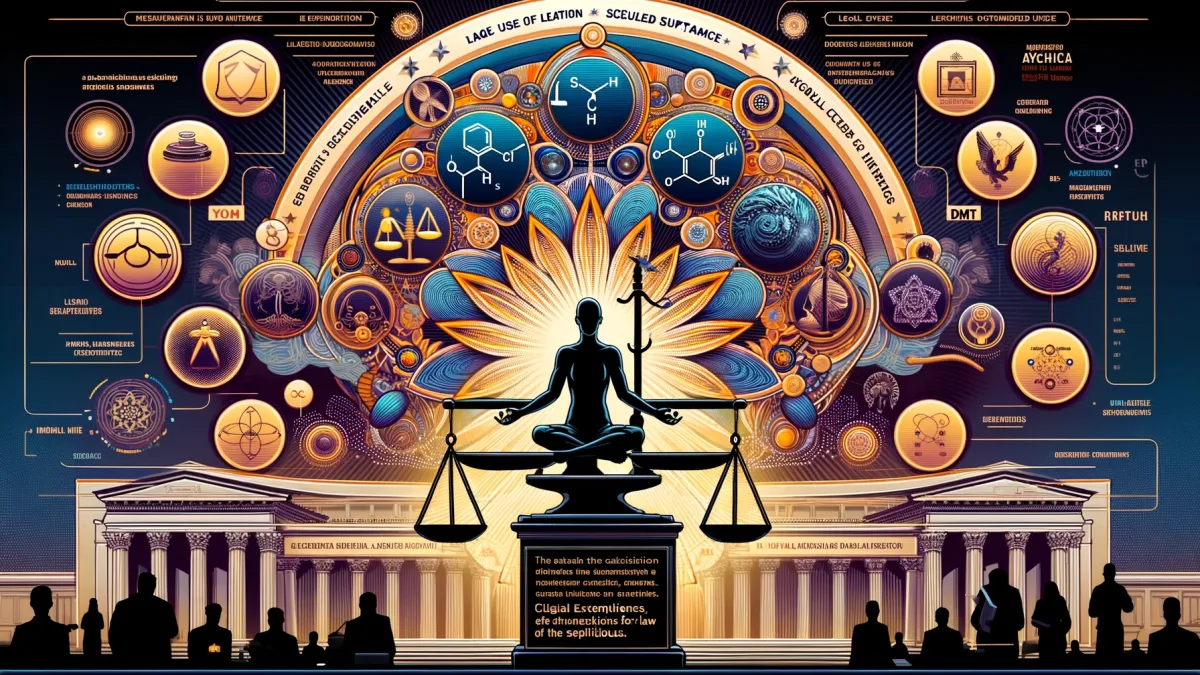In the intricate tapestry of U.S. drug laws, Dimethyltryptamine, more commonly known as DMT, occupies a controversial and often misunderstood position. Renowned for its potent psychedelic effects, DMT has been a subject of both ancient ritual practices and modern scientific research. But where does it stand in the eyes of the law? Let’s unpack the legalities surrounding DMT in the United States, navigating through the layers of legislation in a language we can all understand.
What is DMT?
Before we delve into the legal discourse, a brief primer on DMT is in order. DMT is a naturally occurring psychedelic compound found in various plants and animals, including humans. It’s known for inducing intense hallucinogenic experiences, often described as spiritual or mystical. Despite its profound impact on human consciousness, DMT’s legality is a contentious issue.
DMT and the Controlled Substances Act
In the United States, the legal framework governing psychoactive substances like DMT is the Controlled Substances Act (CSA). Under the CSA, substances are classified into five schedules based on their potential for abuse, medical use, and safety or dependence liability. DMT falls under Schedule I, which is reserved for drugs with a high potential for abuse, no accepted medical use in treatment, and a lack of accepted safety for use under medical supervision.
The Implications of Schedule I
Being listed as a Schedule I substance means that DMT is illegal to manufacture, possess, distribute, or use within the United States, except for in highly regulated research settings. The implications are significant, not just for potential users but also for researchers looking to explore its therapeutic potential.
Legal Exceptions and Cultural Context
While the blanket prohibition is clear, the legal landscape is not without its nuances. Certain indigenous groups have historically used DMT-containing plants in religious ceremonies. The U.S. government has made concessions for the use of ayahuasca, a brew with DMT as its active ingredient, in specific religious contexts following legal battles that cited the Religious Freedom Restoration Act.
Ayahuasca Churches: A Legal Gray Area
The emergence of ayahuasca churches in the United States challenges the rigid classifications of the CSA, operating in a legal gray area that balances religious freedom with drug control policies. These cases highlight the complexities of enforcing drug laws in a multicultural society.
The Debate Over Medical Research and Potential Therapeutic Uses
The Schedule I classification of DMT also impacts scientific research. Despite the hurdles, studies have begun to uncover potential therapeutic uses for DMT, including treating depression and anxiety. Advocates argue that reclassifying DMT could open the door to more extensive research and possible medical applications, sparking debates over drug policy reform.
The Push for Rescheduling
As the conversation around psychedelics and mental health evolves, there’s a growing movement advocating for the rescheduling of DMT. Proponents cite emerging research and the need for alternative treatments as compelling reasons to reconsider DMT’s legal status. However, any change would require navigating the complex interplay of science, law, and public opinion.
Conclusion: Navigating the Legal Psychedelic Landscape
The question of DMT’s legality in the U.S. opens up broader discussions about drug policy, religious freedom, and the pursuit of scientific knowledge. As laws evolve and society’s attitudes shift, the legal status of substances like DMT may change. For now, DMT remains a Schedule I controlled substance, with all the legal restrictions that entail.
For those intrigued by the potential of DMT, whether from a scientific, spiritual, or legal perspective, staying informed about legislative changes and legal challenges is crucial. The journey of DMT from ancient ritual to modern controversy is a fascinating reflection of the broader challenges in balancing public health, personal freedom, and the quest for knowledge.









Leave a Reply